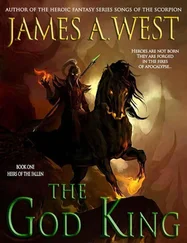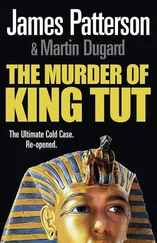James Flecker - The King of Alsander
Здесь есть возможность читать онлайн «James Flecker - The King of Alsander» — ознакомительный отрывок электронной книги совершенно бесплатно, а после прочтения отрывка купить полную версию. В некоторых случаях можно слушать аудио, скачать через торрент в формате fb2 и присутствует краткое содержание. Жанр: foreign_antique, foreign_prose, на английском языке. Описание произведения, (предисловие) а так же отзывы посетителей доступны на портале библиотеки ЛибКат.
- Название:The King of Alsander
- Автор:
- Жанр:
- Год:неизвестен
- ISBN:нет данных
- Рейтинг книги:4 / 5. Голосов: 1
-
Избранное:Добавить в избранное
- Отзывы:
-
Ваша оценка:
- 80
- 1
- 2
- 3
- 4
- 5
The King of Alsander: краткое содержание, описание и аннотация
Предлагаем к чтению аннотацию, описание, краткое содержание или предисловие (зависит от того, что написал сам автор книги «The King of Alsander»). Если вы не нашли необходимую информацию о книге — напишите в комментариях, мы постараемся отыскать её.
The King of Alsander — читать онлайн ознакомительный отрывок
Ниже представлен текст книги, разбитый по страницам. Система сохранения места последней прочитанной страницы, позволяет с удобством читать онлайн бесплатно книгу «The King of Alsander», без необходимости каждый раз заново искать на чём Вы остановились. Поставьте закладку, и сможете в любой момент перейти на страницу, на которой закончили чтение.
Интервал:
Закладка:
James Elroy Flecker
The King of Alsander
PREFACE
Here is a tale all romance – a tale such as only a Poet can write for you, O appreciative and generous Public – a tale of madmen, kings, scholars, grocers, consuls, and Jews: a tale with two heroines, both of an extreme and indescribable beauty: a tale of the South and of sunshine, wherein will be found disguises, mysteries, conspiracies, fights, at least one good whipping, and plenty of blood and love and absurdity: a very old sort of tale: a tale as joyously improbable as life itself.
But if I know you aright, appreciative and generous Public, you look for more than this in these tragic days of social unrest, and you will be most dissatisfied with my efforts to please you. For you a king is a shadow, a madman a person to be shut up, a scholar a fool, a grocer a tradesman, a consul an inferior grade of diplomatic officer, and a Jew a Jew. You will demand to know what panacea is preached in this novel as a sovran remedy for the dismal state of affairs in England. With what hope do I delude the groaning poor: with what sarcasm insult the insulting rich? What is the meaning of my apparent joyousness? What has grim iron-banging England to do with sunshine, dancing, adventure and, above all, with Poets?
In support of my reputation let me hasten to observe that in my efforts to please a generous and appreciative Public I have not failed to insert several passages of a high moral tone. Grave matters of ethics are frequently discussed in the course of my story, and the earnest inquirer may learn much from this book concerning the aim, purpose and origin of his existence. To Government and its problems I have given particular attention, and the observant reader may draw from these subtle pages a complete theory of the Fallacy of the Picturesque. Only I implore the public to forgive the Poet his proverbial licence, to remember that truth is still truth, though clad in harlequin raiment, and thought still thought, though hinted and not explained.
Farewell, then, my King of Alsander. Ride out into the world and conquer. Behind you – a merry and a mocking phantom – my youth rides out for ever!
Beyrouth, Syria , 1913.
CHAPTER I
BLAINDON
Would that I had a little cot
Beside a little hill,
In some romantic English spot
Where summer's not so very hot
And winter not too chill.
The writer of these simple lines, now unhappily dead, was a man of the soil, whose sweet native note had never been troubled by the sinister depravities, the heartless affectations of urban existence; and I believe myself that his pathetic and modest ideal could have been actually realized had he inhabited, as perhaps he did, the peaceful village of Blaindon. This secluded hamlet lies some ten miles from the sea, in an undulating, but not terrible, country – a land of woodland and meadow, of buttercup and daisy, of tiny streams and verdant dells. At evening the scene is more tranquil than ever, and the old church spire, standing sentinel above the cold ploughlands, presents a curiously sad appearance, tinged as it is with the melancholy of years. However at the time when this story opens it was not evening, but afternoon, and a very hot one. The horse in his freedom, like the pig in his confinement, lolled upon the ground, and the thatches rustled with the melodies of sleep.
Yes, let us look beneath those thatches and consider the village yokel for a moment, as with mouth agape and heavy eyelids he takes his meed of repose:
Nec partem solido demere de die
Spernit; nunc viridi membra sub arbuto
Stratus; nunc ad aquae lene caput sacrae.
But if, here in England, he has no arbute tree, or sacred fountain, whereby to stretch his large, unwieldy limbs, there awaits him, nevertheless, the fireside in winter, the straw of the stable loft for hotter days. Ensconced beneath such lowly roofs as those of little Blaindon, many a hundred sons of toil have been born, been married and been finally dead, after a life spent in working nobly for an ignoble pittance, far away from the wearisome strife of new ideas and endeavours, and all the rumbling of the world's chariot wheels.
I have carefully examined the records in the parish church, thinking that they might interest all those who still have faith in the sterling qualities and bulldog tenacity of our British yeoman class. I discovered the interesting fact that only a fifth of the population die before the age of sixty-five; and that the same families seem to have lived here in a state of ceaseless intermarriage for century after century. The Weolkeðings of Saxon days, the Weilcans of the Normans, who are they but the honest Wilkinses round the corner? No great calamities have occurred at Blaindon except an occasional plague; no stirring battles have there been fought. The place seems to have been forgotten or overlooked during the Civil Wars. (However, an inhabitant of the town fought at Balaclava, but not in the Heavy Brigade.) Of the prevailing insanity, I need say nothing; this is the inheritance of all rustic communities. That the people of Blaindon are happy and appreciate their charming home they have proved in the clearest possible way. They have never left it.
Would that he who looks over the church-yard wall down at the tidy rows of one-room cottages, whose gardens blaze with nasturtia and red daisies, could say that no jarring note, no trace of a restless individuality, marred the enchanting scene. But, alas! every traveller is bound to remark a peculiarly ugly two-storied erection, whose rectangular bricks render it at once an eyesore and a solecism. This building used to be called by the inhabitants Price's bongmash: but the name on its sign was Bon Marché (French for Good Market). Mr Price's business was at the time this story opens the most flourishing concern in Blaindon. It was carried on chiefly by the indomitable energy of the younger Price; his father now slept most of the day, not so much on account of his advancing years as because he was very tired and a heavy eater. He could trust his son completely. Young Norman Price was one of the most envied personages in Blaindon. He was only nineteen; a handsome and strong young man, and the face he showed a customer wore no servile frock-coated smirk, but a laugh of real pleasure at being able to supply the needs of the community. Nearly everything was on sale in his shop – all groceries, also cloth, garden seeds, papers, books (the least flourishing part of the trade), and tobacco. Yet his store did not look at all like other village stores where everything is bought in dirty pennyworths. It was well arranged, and the goods were displayed to good account, more after the tradition, I fear, of American vulgarity than of British honesty. Worse still, Price had actually taken upon himself to corrupt the adorable simplicity of the villagers and to turn their thoughts to the enervating fashions of great cities. If a young villager came in who liked to be thought rather a nut and who fancied him self in a new waistcoat, the young grocer would give him a little elegant and expensive tobacco to try, explain that he smoked it himself, and that one smoked less of it than of the commoner sorts, so it came no dearer after all. He utterly refused to sell cigarettes at ten for a penny, or assorted sweets at three half-pence the quarter. It soon became a mark of distinction to be a customer at the Bon Marche, and the firm got a reputation for selling "sound articles and no trash."
I have not mentioned, however, the object that would probably most astonish a gentleman of culture on entering the shop. On the wall hung a large and fine reproduction of Holbein's portrait of Georg Gisze. The young merchant, robed in delicate silk and velvet, and surrounded by keys, quadrants, scissors, maps, and ledgers, was obviously meant to be the tutelary deity of the house; indeed, as a set-off to the flowers that stand upon the painted table, Norman had placed a large bowl of carnations on his counter.
Читать дальшеИнтервал:
Закладка:
Похожие книги на «The King of Alsander»
Представляем Вашему вниманию похожие книги на «The King of Alsander» списком для выбора. Мы отобрали схожую по названию и смыслу литературу в надежде предоставить читателям больше вариантов отыскать новые, интересные, ещё непрочитанные произведения.
Обсуждение, отзывы о книге «The King of Alsander» и просто собственные мнения читателей. Оставьте ваши комментарии, напишите, что Вы думаете о произведении, его смысле или главных героях. Укажите что конкретно понравилось, а что нет, и почему Вы так считаете.











